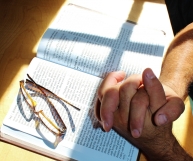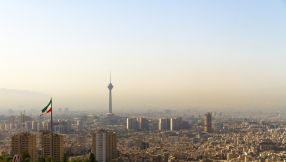
It's a truism to say that we live in troubled times. Old moral certainties have evaporated. Vast movements of people have shaken European states. In the US, a protest movement against political business as usual has resulted in the prospect of a president many regard as dangerously unstable. Churches are struggling in the face of widespread indifference and internal conflict.
Can we still have hope in God's future?
Jeremiah was a great prophet who lived through terrible times. His country was overrun by Babylonian invaders, and there was widespread panic. Anyone who could was converting their land into cash or valuables. Only a fool would buy land which could be taken by the enemy at any time. The people were to be deported; Jeremiah himself was in prison.
So a single verse in Jeremiah 32 is a mighty affirmation of hope. Approached by a cousin desperate to raise cash through selling his land, Jeremiah agrees. In verse 9 he says, "I bought the field at Anathoth."
Jeremiah's decision to buy his family land from his kinsman was more than just a commercial transaction. It was a statement of trust in God's future. He was saying that he believed God would keep his promises to Israel, and that one day the wanderers would come home.
Jeremiah himself didn't live to see it. He died far away from his home, in exile in Egypt, and never saw the fulfillment of the promise.
But his story is a lesson for us. As far as anyone else was concerned, he was a failure. His king didn't listen to his warnings, and was destroyed; his brave statement of faith looked absurd when the nation was defeated. But in time to come he'd be remembered for his faithfulness.
Romans 8:25 says, 'Hope which is seen is not hope; how can we hope for what we see? But if we hope for what we do not see, we wait for it in patience.' Jeremiah hoped in an invisible future, and as far as we know he kept hoping all his life. We are tested, often to breaking point, when our hopes aren't fulfilled. We may have all sorts of hopes and dreams, and have to live with their failure, one by one. But Jeremiah's story tells us that it's worth waiting, and that we should always trust.
God's vision is longer than ours; as the hymn says, he "holds the key of all unknown". Our future is in his hands.
Follow Mark Woods on Twitter: @RevMarkWoods

















